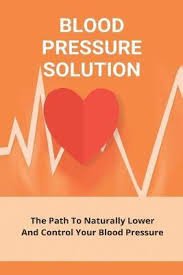Navigating the Future of Healthcare: The Essential Role of Medical Assistants
With the ever-expanding complexity of patient care needs, the healthcare industry relies heavily on the versatility of medical assistants. These multifaceted professionals are adept at bridging the gap between patients and providers, ensuring the smooth execution of clinical and administrative tasks. Training facilities like medical assistant schools Lubbock play a critical role in preparing these individuals for the job’s demands, underpinning the importance of their contributions within the healthcare ecosystem. Their role encompasses a variety of functions that not only improve the efficiency of healthcare services but also uplift the patient experience.
Medical assistants are instrumental in facilitating the flow of information within medical practices, from ensuring accurate patient records to conveying critical medical instructions. The breadth of their responsibilities also covers front-line patient interactions, making them key players in shaping the impression and efficacy of the healthcare delivery system. Furthermore, medical assistants are increasingly trusted to perform routine clinical procedures, optimizing the time and focus of doctors and nurses on more complex tasks. This broad spectrum of duties emphasizes the indispensability of medical assistants in modern healthcare settings and highlights the need for their comprehensive education and training.
The Evolving Scope of Medical Assistant Responsibilities
Recent years have witnessed a considerable extension of the scope of responsibilities undertaken by medical assistants. They are no longer restricted to traditional tasks such as billing and scheduling. Still, they are now integral to patient care management, including obtaining vital signs, administering medications, and even assisting with minor surgical procedures. This evolution is a testament to their growing importance and exhibits their capability to adapt and expand their skill sets in response to the sector’s shifting needs.
Medical assistants often act as patient educators, explaining treatment plans and guiding individuals through healthcare provisions. They provide emotional support and clarity in circumstances that might otherwise overwhelm patients. Specialization in the medical assisting field has become increasingly common, enabling professionals to concentrate on specific areas such as cardiology, pediatrics, or gerontology – each requiring its unique knowledge and set of skills. This capacity to specialize further enriches the functionality and adaptability of medical assistants within diverse healthcare settings.
Education and Training: Pathways to Becoming a Medical Assistant
The foundation for becoming a proficient medical assistant is through structured education and training programs. These programs are focused on imparting the necessary medical knowledge and procedural skills. Reputable institutions, such as medical assistant schools in Lubbock, are integral in this educational journey, providing students with a blend of classroom learning and hands-on clinical experiences. The curriculum generally encompasses anatomy, medical terminology, pharmacology, and administrative practices, ensuring well-rounded preparation for the varied tasks they will undertake.
Certification programs that can enhance a medical assistant’s qualifications complement primary education. Such credentials, recognized throughout the healthcare industry, attest to the individual’s commitment to the profession and mastery over essential competencies. These certifications and ongoing professional development opportunities, such as workshops, seminars, and networking events, pave the way for medical assistants to advance within their careers and contribute more significantly to healthcare delivery.
Professional Growth and Career Advancement for Medical Assistants
The career trajectory for medical assistants is by no means linear or confined. The field provides ample opportunities for professionals to ascend to roles with greater responsibility and complexity. For instance, experienced medical assistants may move into supervisory positions, overseeing the work of their colleagues and contributing strategically to practice management. Others may further their education, perhaps transitioning into nursing or healthcare administration, thus leveraging their medical assisting experience as a springboard to broader horizons within the healthcare industry.
Understanding the Regulatory Environment for Medical Assistants
Regulatory compliance is a significant aspect of the medical assistant role. These professionals must comply with relevant healthcare laws, regulations, and ethical guidelines. Whether it’s HIPAA regulations governing patient privacy or OSHA standards ensuring workplace safety, medical assistants play a pivotal role in upholding these standards within healthcare practices. Their understanding of these frameworks not only safeguards the rights and well-being of patients but also protects the integrity and reputation of medical institutions.
The Significance of Soft Skills in Medical Assisting
While technical expertise is crucial, the value of soft skills in medical assisting must be balanced. Effective communication, empathy, and professionalism are indispensable when interacting with patients experiencing stress or discomfort. Managing interpersonal dynamics with patients and medical staff contributes to a harmonious work environment and a more positive patient experience. Medical assistants must bring compassion and proficiency to every aspect of their work, emphasizing that healthcare is as much about caring for the human spirit as it is about treating physical ailments. UPMC Shift Select
Challenges Faced by Medical Assistants and How to Overcome Them
The multifaceted role of medical assistants naturally comes with challenges, ranging from juggling a high volume of tasks to managing the emotional toll of patient care. To sustain their well-being and provide high-quality support, medical assistants must implement effective stress management strategies and cultivate a supportive network of colleagues. Emphasizing self-care and seeking continuous feedback for improvement can lead to personal and professional growth amidst the demands of this critical work.
Conclusion: Medical Assistants as Unsung Heroes of Healthcare
In closing, it is evident that medical assistants are the unsung heroes of the healthcare industry, operating at the intersection of clinical care and patient interactions. Their contributions testify to their dedication and skill and reflect their critical role in ensuring that healthcare systems deliver seamless and compassionate services. As the healthcare horizon expands, the reliance on and recognition of medical assistants will undoubtedly grow, placing them firmly at the heart of healthcare’s evolving narrative.







